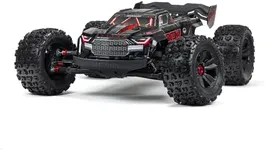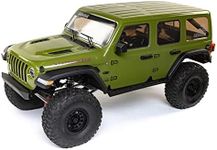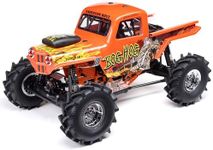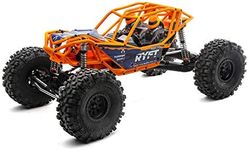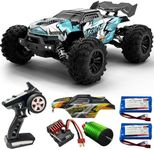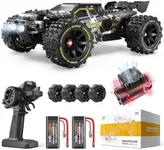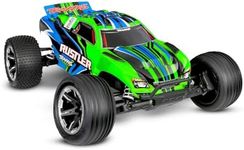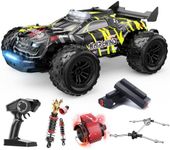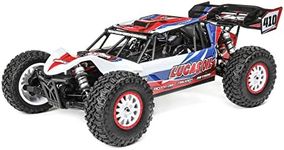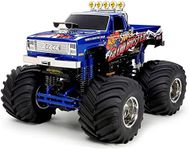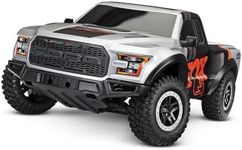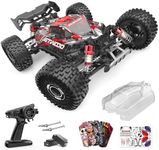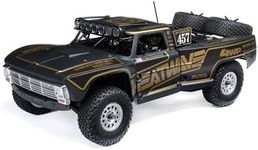Buying Guide for the Best Rc Trucks
Choosing the right RC truck can be a fun and rewarding experience, whether you're a beginner or an experienced hobbyist. The key is to think about how and where you plan to use your RC truck—do you want to race, perform stunts, or just enjoy some off-road fun? Understanding the main features and specifications will help you find a truck that matches your interests and skill level. Take your time to compare different options, and focus on the specs that matter most for your intended use.Scale SizeScale size refers to how big the RC truck is compared to a real truck. Common scales are 1:10, 1:12, and 1:18, with 1:10 being larger and more detailed, while 1:18 is smaller and more portable. Larger trucks are better for outdoor use and rough terrain, while smaller ones are easier to store and can be used indoors or in smaller spaces. Think about where you'll be driving your truck and how much space you have when choosing the right scale.
Motor TypeRC trucks come with either brushed or brushless motors. Brushed motors are simpler and usually found in beginner models—they offer decent speed and are easier to maintain. Brushless motors are more powerful, efficient, and last longer, making them ideal for those who want higher speeds and better performance. If you're just starting out or want something easy to handle, a brushed motor is a good choice. If you crave speed and plan to upgrade or race, consider a brushless motor.
Drive SystemThe drive system determines how the power is delivered to the wheels. Two-wheel drive (2WD) trucks are simpler, lighter, and often less expensive, making them great for beginners and smoother surfaces. Four-wheel drive (4WD) trucks provide better traction and control, especially on rough or slippery terrain, but they can be a bit more complex to maintain. If you plan to drive mostly on flat surfaces, 2WD is sufficient. For off-road adventures or challenging conditions, 4WD is the better option.
Battery TypeRC trucks typically use either NiMH (Nickel-Metal Hydride) or LiPo (Lithium Polymer) batteries. NiMH batteries are more forgiving and easier to handle, making them suitable for beginners. LiPo batteries are lighter and provide more power and longer run times, but they require more careful handling and charging. If you want simplicity and safety, go with NiMH. If you want longer playtime and higher performance, and you're comfortable with a bit more maintenance, LiPo is the way to go.
Suspension and Ground ClearanceSuspension and ground clearance affect how well your RC truck can handle bumps, jumps, and rough terrain. Trucks with higher ground clearance and better suspension systems are ideal for off-road use, as they can tackle rocks, grass, and uneven surfaces with ease. Lower clearance is better for on-road or smooth surfaces, offering more stability at high speeds. Consider where you'll be driving most often—if you love off-roading, prioritize good suspension and higher clearance.
Durability and Build MaterialThe materials used in the chassis and body of the RC truck impact its durability. Trucks made with reinforced plastics or metal parts can withstand more crashes and rough play, which is important if you're new to the hobby or plan to drive aggressively. Lighter materials are good for speed but may not be as tough. Think about how rough you’ll be on your truck and choose a build that matches your style—if you expect lots of tumbles, go for something sturdy.
